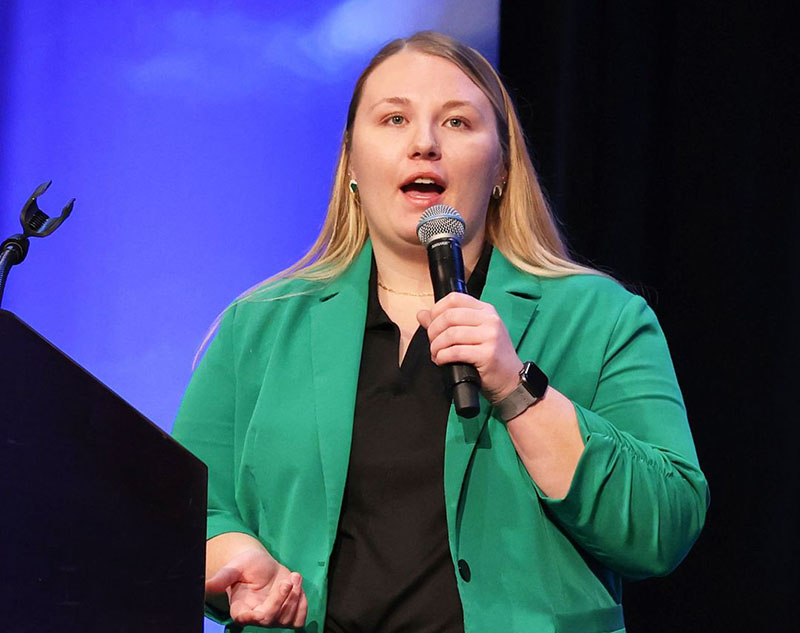At National Farmers Convene ’24, Soil Health, Carbon Insets Addressed
(CORALVILLE, Iowa) March 19, 2024—At National Farmers Convene ’24 last week, improving soil health to help farmers deal with changing climate conditions and carbon intensity was addressed.
Carolyn King, vice president, Continuum Ag emphasized the importance of soil armor – protecting soil from wind and water as it moves across the soil, minimizing soil disturbance, plant diversity, living roots, and livestock integration. “There are thousands of pounds of nutrients in the soil that we are unable to access,” King said. But, by improving soil health and ensuring healthy, diverse microbe communities, these nutrients become available to our plants.
King says soil microbes prefer 75 degrees, but that soil temperature is often exceeded. On a day when it is 91 outside, soil covered with a green cover crop can be 76 degrees, while bare soil can read 126. “Reducing chemicals and physical disturbance helps ensure that soil structure remains intact and microbe communities remain healthy,” King said. Once soil structure is disturbed, it holds less water as well as oxygen.
To keep a living root in the soil for as long as possible, she offered an example of planting rye in the fall, and then soybeans into that same field in the spring. Harvesting rye in early summer, the soybeans are then harvested in the fall. Without a loss of yield, the soil benefits from diversity, and breaks up pest and disease cycles while gaining another stream of income.
King also spoke about a new carbon intensity program that can help farmers earn more money. As part of the Inflation Reduction Act, a new tax credit, 45z, allows biofuel companies to lower their carbon intensity. This is where farmers come in. If the grain sold to an ethanol or biofuel plant has a lower carbon footprint than normally grown corn, it lowers the biofuel company’s carbon intensity score.
“Grains contribute about 50 percent of the carbon intensity of a gallon of biofuel,” said King. Farmers who reduce their corn’s CI Score below 29 are being sought after and paid for their low carbon crop and the data associated to prove the score.” Soil health practices lower the carbon intensity (CI) score of the corn. Utilizing cover crops and reduced tillage or no-till reduces that score.
While details are not yet approved, corn grown in 2024 which will used for biofuel in 2025 is eligible. Farmers will need their practices certified, by companies like Continuum Ag, and know their corn’s CI score. Farmers then provide the information to the biofuel plant earning more money per bushel for a lower score corn.
“Data and documentation are key, this will be the first time farmers are paid for soil health practices,” King said.
National Farmers 2024 national convention is sponsored by Cross Law Firm, ASA, Organic Valley and RSM. National Farmers appreciates its partners in agribusiness.
National Farmers is a conventional and organic commodity marketing organization for the nation’s farmers and ranchers.










